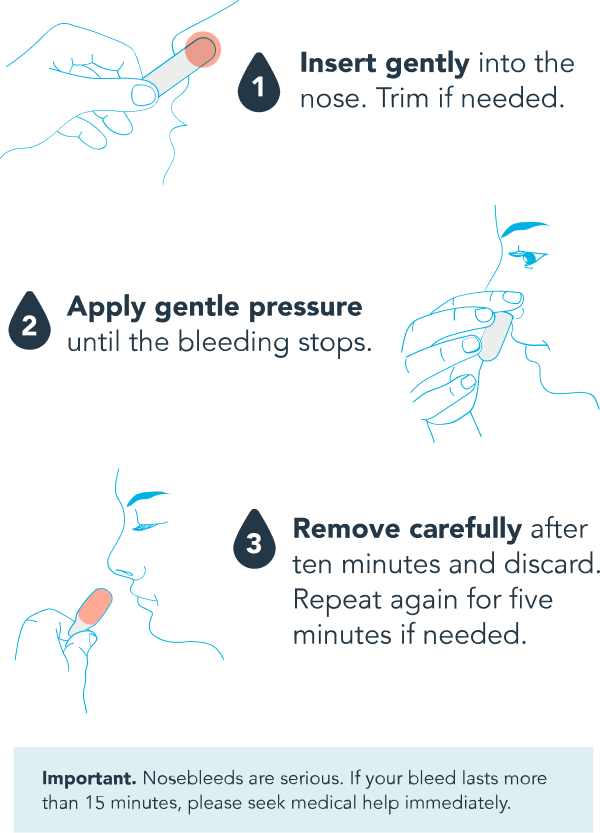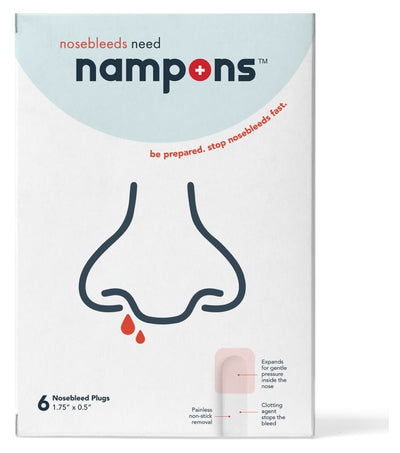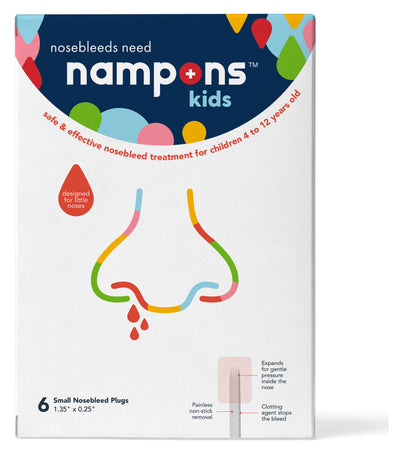Causes, treatment & prevention of sports related nosebleeds
Getting hit in the face is a sure fire way to start a nosebleed. The blood vessels inside your nose are incredibly delicate, so any trauma typically results in the nose bleeding. In many sports, a nose bleed can put you on the sidelines, even cost you the match, so knowing what causes them, how to prevent them and the fastest way to treat them to get back in the game is key to winning.
-
Causes
Physical injury is one of the primary causes of nosebleeds in athletes. Getting hit by an opponent, a ball or equipment, as is the case in basketball, soccer, boxing, football, martial arts, baseball or even volleyball, can lead to trauma-induced nose bleeds.
It's important to understand a little about the anatomy of the nose. Inside your nose there are tiny, delicate blood vessels lining each nasal cavity. The lining of the nasal walls are also very thin. As a result, it's fair easy, and common, that getting hit in the face or nose will cause the blood vessels to burst and skin to break, leading to that game stopping bleed.
-
The top causes of nosebleeds due to sports are:
- Trauma
- Dry Air, such as the air inside a gymnasium
- Increase blood pressure from exertion
- Nasal congestion due to vigorous exercise
- Inhaling foreign bodies, such as sand or dirt from the field
- Tight fitting nose guards and masks
- Heavy breathing, which dries out the nose
- The use of nasal sprays, such as decongestants, that some athletes use before a match to help them breathe
Now that you know the top causes, let's discuss how to prevent a nosebleed from benching you.
-
Prevention
Preventing sports-related nosebleeds involves a combination of various protective measures. Your first line of defense is obviously protective equipment that keeps hard objects, including opponents, from contacting the nose.
However, as mentioned above in causes of nose bleeds in sports, trauma is only one factor. Dry air, increased respiration, increased blood pressure and medications can't be stopped by a face mask.
A health, practical mix of preventative measures can be employed to reduce your risk of a nose bleed during a game. Of course, if you do get a bleed, getting it under control quickly so you can get back into the game is also critical, which is where Nampons™ come in.
-
- Protective Equipment. For contact sports, use protective masks, headgear or a face shield where possible. Make sure it fits properly as ill-fitting equipment can cause more harm than good.
- Keep Hydrated. Drinking plenty of liquid before, during and after the game will keep the mucous membranes in your noise moist, preventing cracking that leads to a nosebleed.
- Use A Moisturizing Spray. Like above, keeping the nose moist is key to preventing a nosebleed. Use of a saline or moisturizing spray or gel before or during a game will not only reduce the risk of a nosebleed, but clear your air passage so you get more O2 and play stronger.
- Be prepared. If you do get a nosebleed, make sure you have the right first aid supplies, such as Nampons™ brand products, to handle them quickly and safely so you can get back in the game.

Proper Treatment
The Old Way
If you're an athlete, you've probably heard crazy stories about coaches wrapping Duct tape around someone's head to keep a bloody tampon, cottom plug or tissue in their nose and shoving them back out into the ring or field. Not only is this dangerous as the blood pools inside the nose and starts to drip down your throat, chocking you, you look ridiculous!
The Recommended Way
For 20 years, hospitals, doctors and pro-athletes in the know have been using nasal plugs or "nasal tampons," such as Nampons™, to stop nosebleeds fast and get back in the game. Nampons™ stay in place - no Duct tape required, while absorbing 10x more blood and allowing for airflow so you can play at peak performance.


